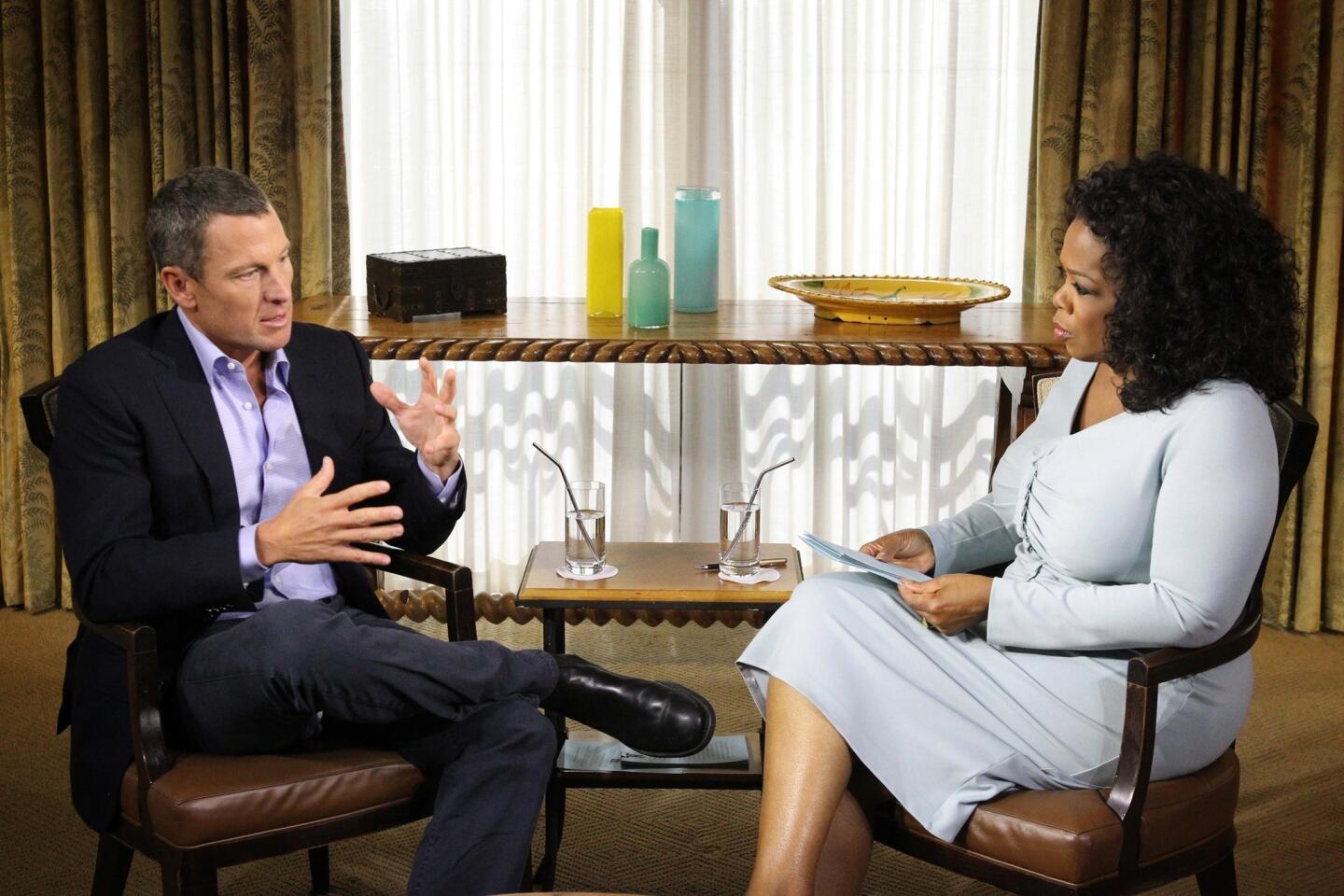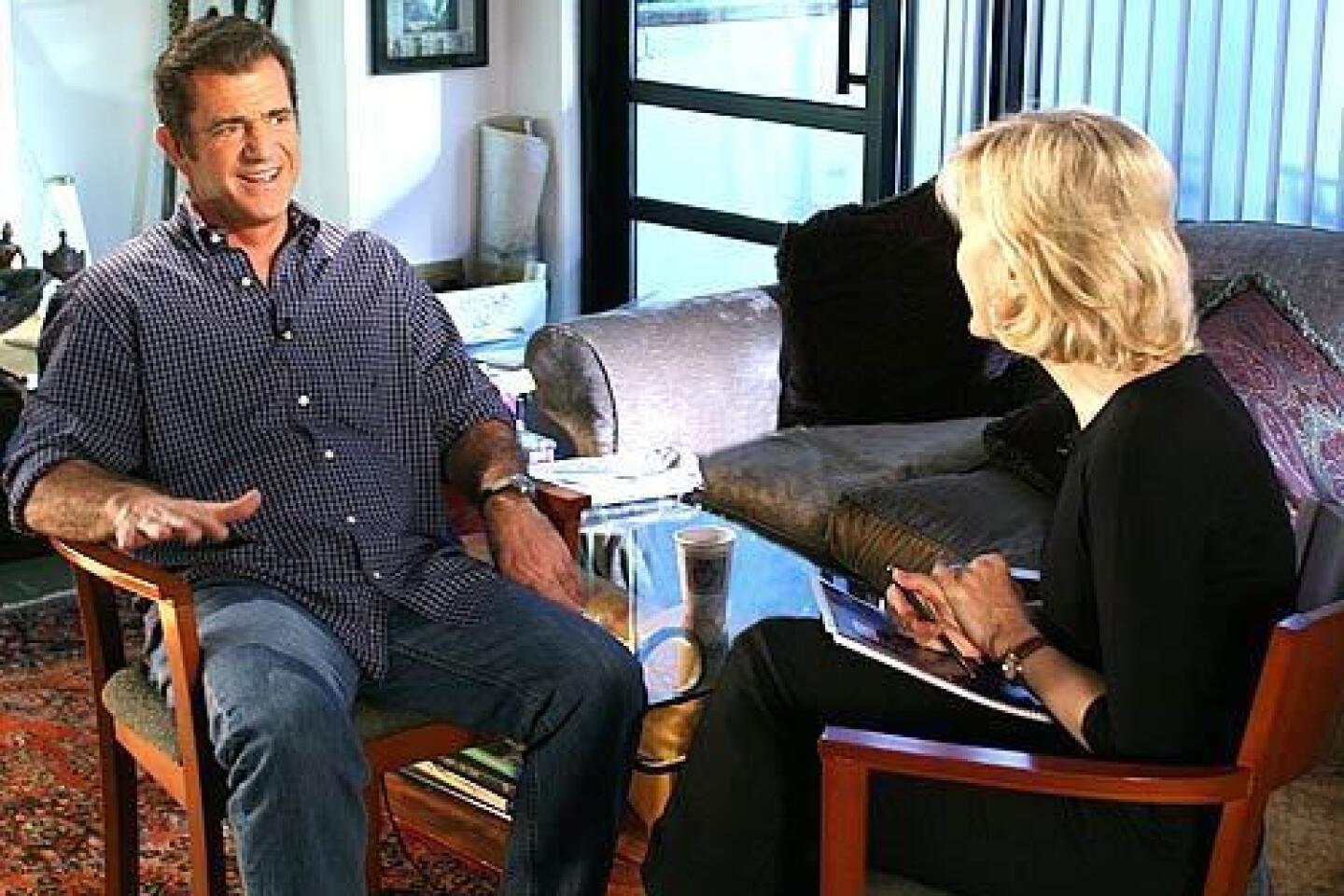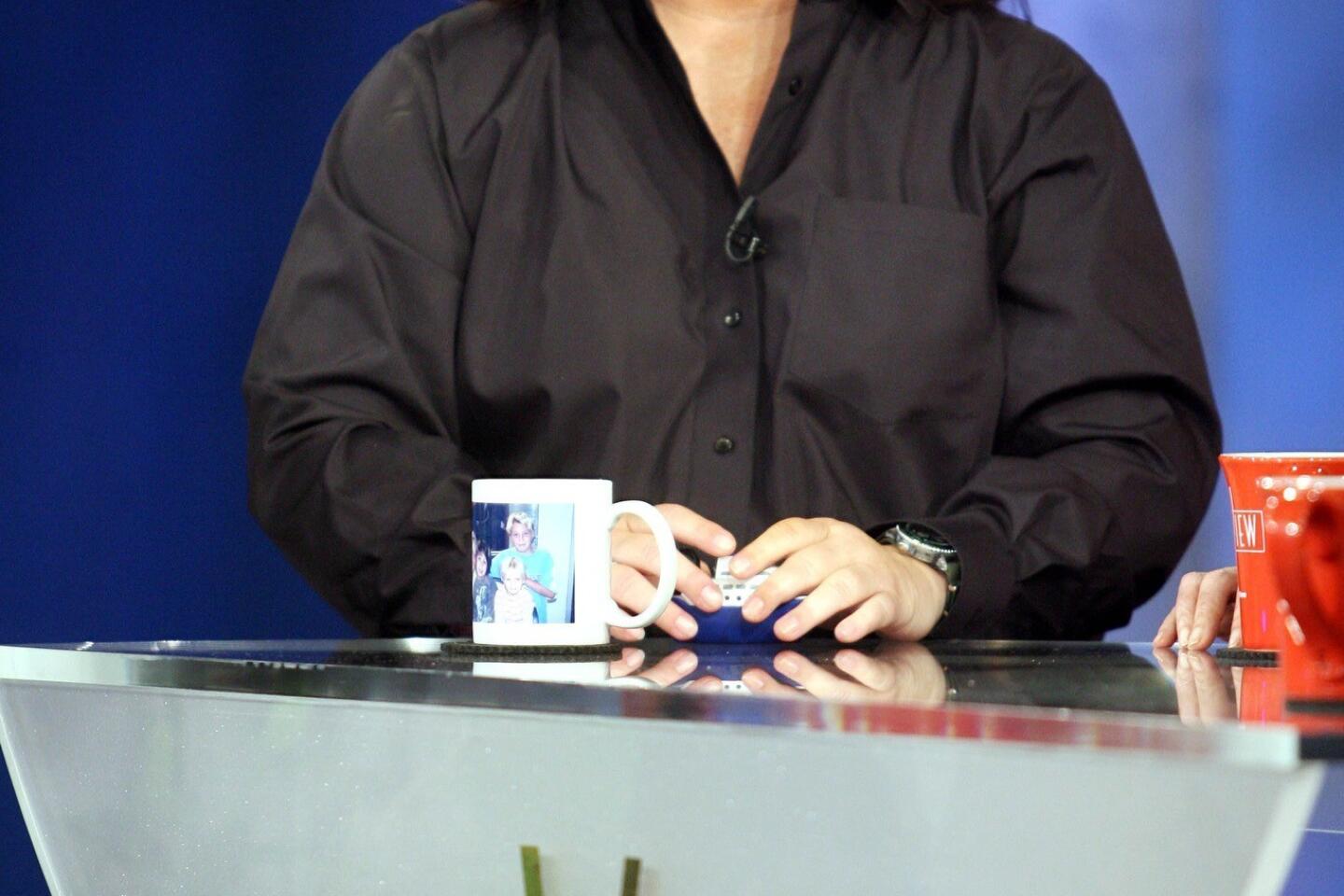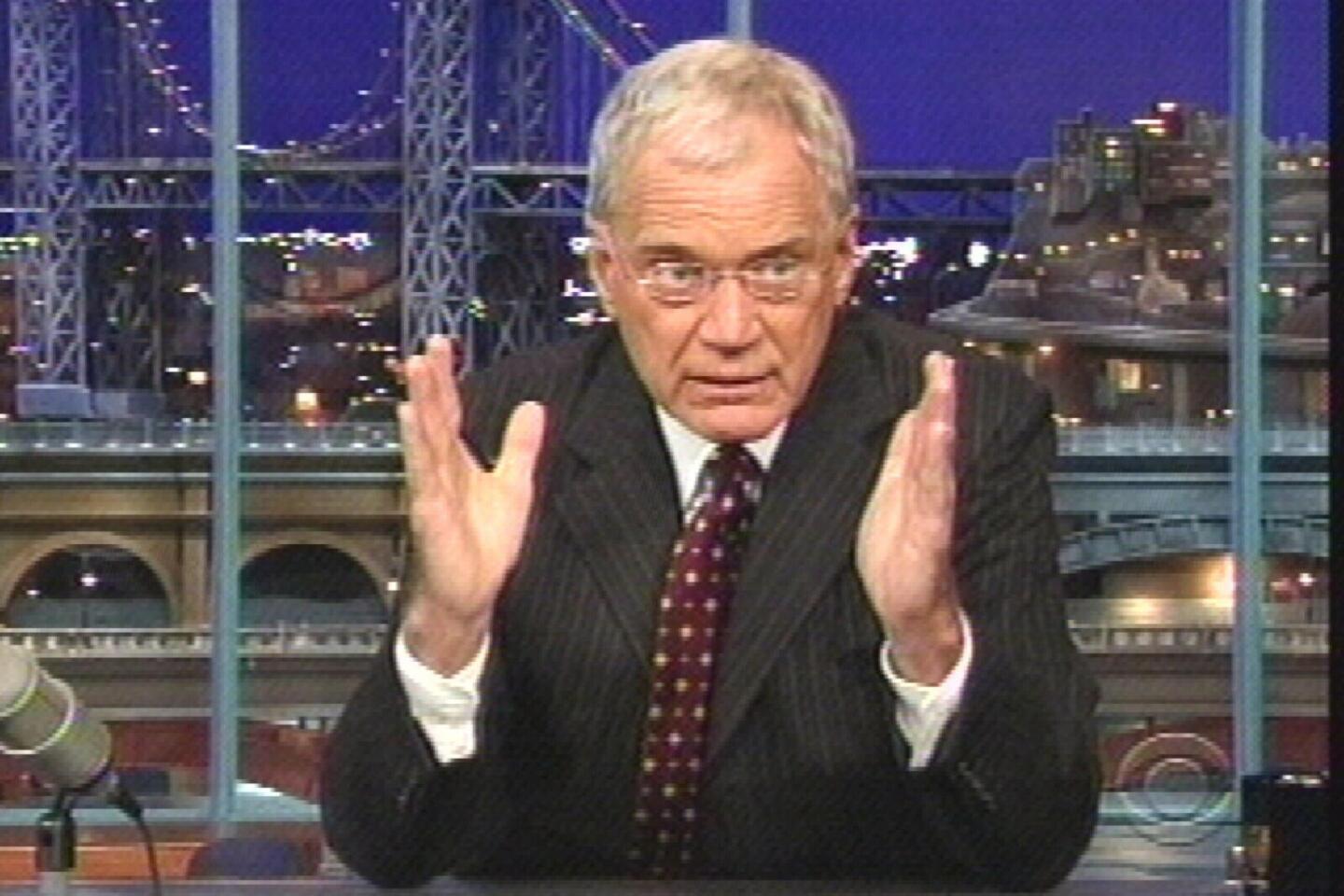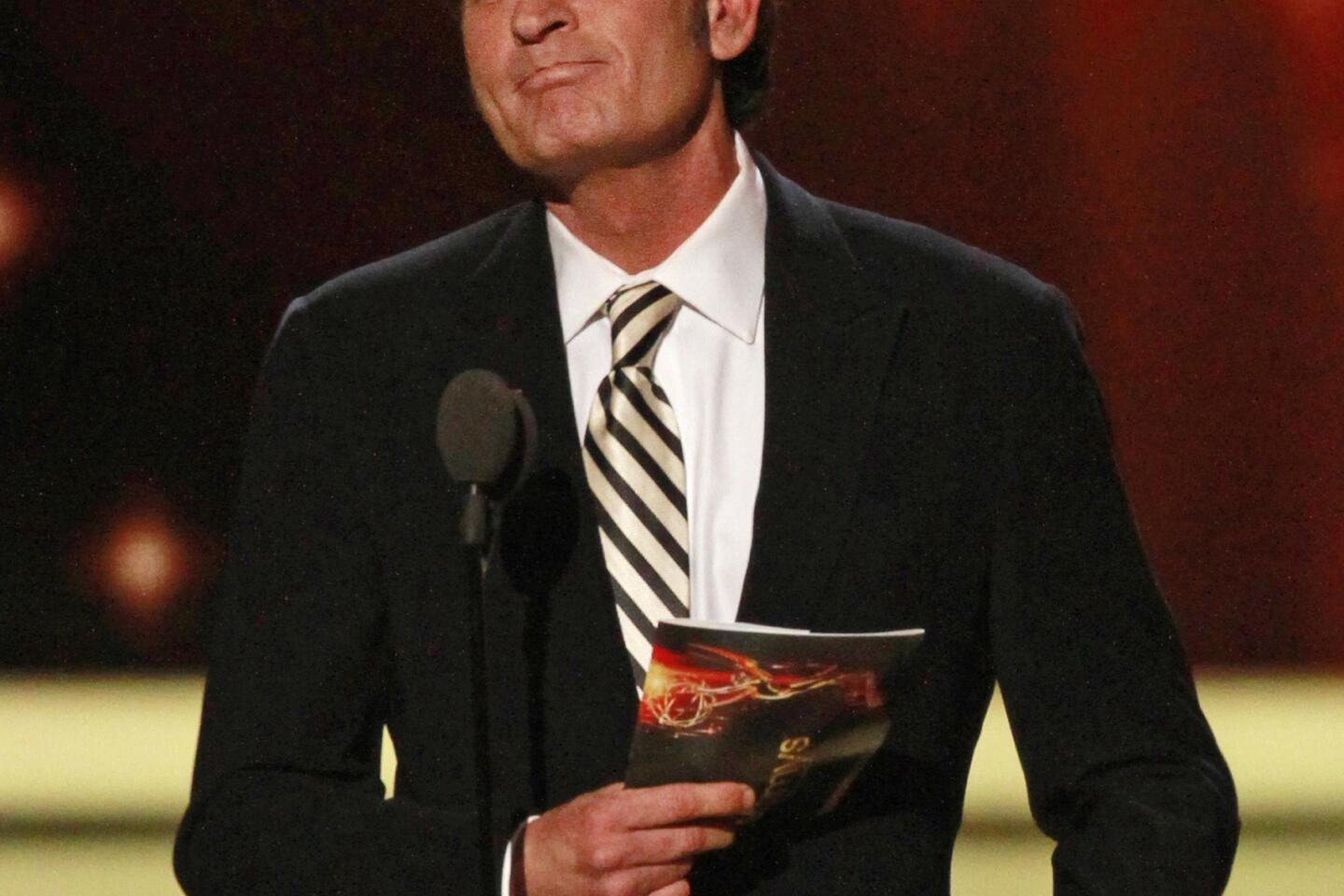Truth altered the course of a new film about Lance Armstrong
Hollywood’s love for sequels knows few limits, yet rare is the instance when a studio turns out a follow-up to a movie that was never released.
That’s the case with the new documentary “The Armstrong Lie,” which is a spinoff from an earlier Lance Armstrong movie called “The Road Back.”
Sony Pictures was poised to release “The Road Back,” but just as director Alex Gibney (“Taxi to the Dark Side”) was completing it in 2011 came fresh — and persuasive — evidence that the famed cyclist had won the Tour de France a record seven consecutive times thanks to performance-enhancing drugs.
So Gibney and producers Matt Tolmach and Frank Marshall discarded “The Road Back,” which was almost as much hagiography as biography, and remade the documentary as “The Armstrong Lie.”
PHOTOS: Billion-dollar movie club
The film, which opens Friday in Los Angeles, is a far tougher chronicle of Armstrong’s deceitful (and often vindictive) behavior and an unusually candid account of how the team behind the movie was seduced into believing the athlete’s carefully crafted but fully fraudulent story.
“We were so caught up in the myth,” said Marshall, producer of “Raiders of the Lost Ark” and “The Sixth Sense,” whose friendship with Armstrong began at the 2000 Summer Olympics in Sydney, Australia. “Had ‘The Road Back’ come out, it would have missed the point.”
The path to the screen for any Sony movie about Armstrong is nearly as tortuous as a cyclist’s climb up the switchbacks of a Pyrenean summit. Sony’s involvement in Armstrong’s life story dates back to his 2000 memoir, “It’s Not About the Bike: My Journey Back to Life,” which recounted Armstrong’s recovery from metastasized testicular cancer to his first Tour de France victory in 1999.
Sony studio chief Amy Pascal personally met with Armstrong to sell him on the studio’s adaptation of the bestseller, and Sony spent several years developing screenplays based on the book, with Gary Ross (“Seabiscuit”) once penciled in to write and direct. The studio even shot part of the 2005 Tour de France, Armstrong’s last win, in case they needed to cut real footage into the fictional feature.
But when Tolmach, a senior Sony production executive at the time and an avid cyclist, heard in late 2008 that Armstrong was returning to the next summer’s Tour de France after a nearly four-year layoff from the stage race, he and Marshall persuaded the studio to enlist Gibney and film the comeback.
Compared to those of almost all other documentaries, the budget ($3.5 million) and equipment (Gibney used 10 cameras on some Tour de France stages) was astounding. The production even mounted a miniature camera on the bike of Armstrong teammate Yaroslav Popovych, delivering hair-raising images from within the bike race. Gibney also captured Armstrong’s feud with Alberto Contador, who raced alongside Armstrong and would win that year’s Tour while Armstrong finished a distant third.
Though Armstrong’s loss to Contador was scarcely the Hollywood ending Gibney, Tolmach and Marshall wished for, “The Road Back” had bigger problems.
By 2011, a federal criminal investigation into Armstrong’s possible use of performance-enhancing drugs was gathering momentum, and former teammate Floyd Landis, in disclosing his own use of testosterone, blood transfusions and Erythropoietin, or EPO, had implicated Armstrong in similar deeds. The filmmakers showed “The Road Back” to Pascal, who recommended they take a break.
“There was a lot of noise in the air,” said Tolmach. “And Amy said, ‘Let’s not put out a movie and be trapped by the real news.’”
That real news turned “The Road Back” into “The Armstrong Lie.”
Even though federal investigators dropped their inquiry, in October 2012 the United States Anti-Doping Agency released a voluminous report, buttressed by sworn testimony from 11 Armstrong teammates, concluding that Armstrong’s racing team “ran the most sophisticated, professionalized and successful doping program that sport has ever seen.”
Given that Armstrong had denied doping throughout his career — including under oath — Gibney recast his movie as an exploration of the psychology of a sometimes angry but always compulsive liar, an athlete convinced his right to win not only meant that he could cheat but also that he could destroy, through litigation and character assassination, anyone who truthfully said that he had.
PHOTOS: Celebrities by The Times
While the film, which is being released by the studio’s art house division, Sony Pictures Classics, does not contain any bombshells about Armstrong’s drug use (although it does point up the unholy alliance between the racer and the sport’s governing body), it does offer an illuminating portrait of a narcissist.
“I think Lance is exceptionally simple and extraordinarily complex,” Gibney said. “It’s all binary to him — win or lose, live or die. Inside the sport, that win-at-all-costs ethic is admirable, but when it spills outside of the sport it’s dispiriting.”
Gibney retained about 30 minutes of footage from “The Road Back,” and sharpened his knife. The director said that he had clashed with Tolmach and Marshall about how much of Armstrong’s doping — then publicly unproved — and less amiable attributes would factor into the film’s first iteration, but felt unconstrained with “The Armstrong Lie” to be kind.
At the same time, Gibney chose to include himself in the new version of the film, showing how someone trained to be a skeptic could fall for the Armstrong legend. “I was impressed, and I did become a fan,” the director said. “I thought it was a redemption story.” But then, as he read the USADA report, his blinders came off, as they did for Tolmach and Marshall.
PHOTOS: Behind-the-scenes Classic Hollywood
“I was a true believer until the very last moment,” Marshall said. “I wanted it to be the greatest sports story ever.”
As Gibney was reworking his documentary in October 2012, Armstrong summoned Tolmach and Marshall to his office in Austin, Texas, willing to confess. “Lance basically agreed that he would come clean in our film,” Gibney said.
But he soon “panicked,” Gibney said, and called Oprah Winfrey to partially confess. In the televised interview, Armstrong refused to admit that he was juiced in his 2009 comeback (as the USADA report strongly suggested) and failed to say that Betsy Andreu, a longtime friend and one of the first people to say Armstrong used performance-enhancing drugs, had told the truth about his hospital room confession in 1996.
“He had a lot of practice in how to protect the lie,” the director said, “but he had no practice in coming clean.”
More to Read
Only good movies
Get the Indie Focus newsletter, Mark Olsen's weekly guide to the world of cinema.
You may occasionally receive promotional content from the Los Angeles Times.
